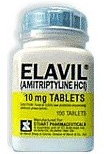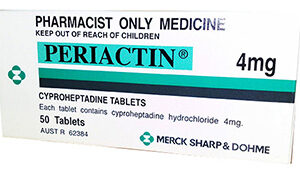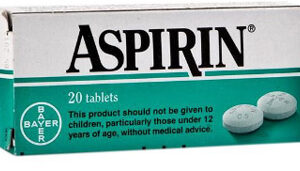Aspirin Medication Overview
Aspirin, also known by its chemical name acetylsalicylic acid (ASA), is a nonsteroidal anti-inflammatory drug (NSAID) with analgesic, antipyretic, and anti-inflammatory properties. It is widely used for the relief of pain, fever, and inflammation. It also has an antiplatelet effect, making it useful in the prevention of blood clots and cardiovascular events.
Dosage Forms and Strengths
Aspirin is available in various dosages and forms, including tablets, chewable tablets, enteric-coated tablets, and extended-release formulations. Common tablet strengths range from 81 mg, often referred to as “low-dose” aspirin, to 325 mg for regular strength, and up to 500 mg for extra strength options.
Pharmacological Mechanism
Aspirin works by inhibiting the enzyme cyclooxygenase (COX), particularly COX-1 and COX-2. This inhibition disrupts the conversion of arachidonic acid to thromboxane A2, prostaglandins, and other pro-inflammatory chemicals, thus leading to reduced inflammation, pain relief, and diminished fever. Its inhibitory effect on thromboxane A2 also reduces platelet aggregation, providing its anticoagulant properties.
Indications for Use
Aspirin is indicated for a variety of conditions including:
- Pain relief for headaches, muscle aches, toothaches, and menstrual cramps.
- Reduction of fever.
- Treatment of inflammatory conditions such as rheumatoid arthritis and osteoarthritis.
- Secondary prevention of heart attacks and strokes.
- Prevention of transient ischemic attacks (TIAs or mini-strokes).
- Adjunctive therapy in revascularization procedures (angioplasty, coronary stent).
Dosage and Administration
For adults, the recommended dosage varies according to use:
- Pain and fever: 325 mg to 650 mg every 4-6 hours as needed, not to exceed 4 grams per day.
- Rheumatic fever and arthritis: 3 to 6 grams per day in divided doses.
- Cardiovascular event prevention: 81 mg to 325 mg once daily, as advised by a physician.
Adjustment for Special Populations
Patients with renal or hepatic impairment may require dose adjustments or more careful monitoring due to altered drug metabolism. Geriatric patients should use the lowest effective dose to minimize adverse effects. The use in children, especially with viral infections, is associated with the risk of Reye’s syndrome, and a healthcare provider should be consulted for appropriate dosing or alternatives.
Drug Interactions
Aspirin may interact with various medications, which can alter its effects or increase the likelihood of side effects. Notable interactions include:
- Anticoagulants (e.g., warfarin, heparin) and other antiplatelet agents: Increased risk of bleeding.
- Nonsteroidal anti-inflammatory drugs (NSAIDs): Increased risk of gastrointestinal bleeding.
- Selective serotonin reuptake inhibitors (SSRIs): Enhanced antiplatelet effect may increase bleeding risk.
- Antacids: May reduce aspirin absorption.
- Alcohol: Elevated risk of gastric bleeding.
- Uricosuric agents: Decreased effectiveness in gout therapy.
Adverse Drug Reactions
While generally safe at recommended doses, aspirin use may lead to:
- Gastrointestinal complications such as dyspepsia, ulcers, and bleeding.
- Hypersensitivity reactions including bronchospasm, angioedema, and anaphylaxis, particularly in asthmatics with the ASA triad (aspirin sensitivity, asthma, and nasal polyps).
- Hemorrhagic events like gastrointestinal bleeding, intracranial hemorrhage, or prolonged bleeding time.
- Otic effects such as tinnitus and hearing loss (generally reversible and associated with high doses).
Overdosage and Toxicity Management
Aspirin overdose can lead to serious complications, including metabolic acidosis, electrolyte imbalance, respiratory alkalosis, and potentially death. Treatment of overdose involves supportive measures, gastric decontamination, correction of acid-base and electrolyte disturbances, enhanced elimination techniques like urinary alkalinization, and hemodialysis in severe cases.
Pregnancy and Lactation Considerations
Aspirin is classified as a category D drug by the FDA for use during the third trimester of pregnancy due to potential risks of premature closure of the ductus arteriosus and peripartum bleeding. It should only be used during pregnancy when clearly needed and when benefits outweigh risks. Aspirin is excreted into breast milk in small amounts but is generally considered safe for use during breastfeeding when taken at low doses for short periods.
Storage and Stability
Aspiring should be stored in its original packaging at room temperature, away from moisture and heat. Enteric-coated tablets should not be crushed or broken. Medication should be kept out of reach of children to prevent accidental ingestion, which can lead to serious adverse events.
Patient Education and Counseling
Patients should be made aware of the importance of following the dosing regimen as prescribed by their healthcare provider. They should be counseled on recognizing signs of bleeding and other serious adverse effects, and advised to avoid simultaneous use of other NSAIDs, alcohol, or any other drug or supplement without consultation. Furthermore, patients should be instructed on appropriate use for cardiovascular protection and informed about the potential risks in surgery or invasive procedures.







Reviews
There are no reviews yet.